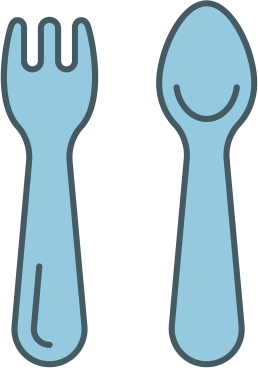 Organic versus Conventional Food
Organic versus Conventional Food
You may be wondering whether you need to buy organic foods. The term “organic” refers to the way foods are grown and processed. Organic farmers must comply with federal regulations, which specify soil quality, animal raising practices, pest and weed control, and use of additives. A 2012 systematic review found no strong evidence that organic foods are significantly more nutritious than conventional foods. Only two studies (out of 17) reported lower pesticide residue in the urine of children on an organic diet. Nonetheless, additional research is needed to determine any health effects related to specific concentrations of pesticide exposure in infants and children. The United States Department of Agriculture (USDA) provides organic seals for products that contain certain percentages of organic ingredients, but they make no claims or guarantees that these foods are safer or more nutritious than nonorganic foods.
The downside to organic produce is that it is more expensive than conventional produce. It’s important to understand that the health benefits of eating produce outweigh any potential risks from pesticide exposure.
Fresh versus Canned versus Frozen
While fresh produce seems like the obvious choice, it’s not the only choice. Nutrients in fresh fruits and vegetables start to break down after harvest. Ascorbic acid (vitamin C), for instance, decreases when stored for a long time, but refrigeration can slow it down. Therefore, try to use the produce as quickly after harvesting or purchasing as possible, in order to keep the most nutrients. When selecting fresh fruits and vegetables, choose those without severe bruising or signs of spoilage.
Manufactures of frozen and canned product generally use produce immediately after harvesting so there is very little nutrient loss up front. However, the canning or freezing process does cause some nutrient losses, depending on the particular nutrient. For instance, during the canning process, thiamin (vitamin B) may be decreased by 25% to 66%, depending on the particular produce item. Canned vegetables have added sodium, which your baby does not need. If buying canned vegetables, purchase no added salt canned vegetables and always rinse with water before using.
Whether you choose fresh, canned or frozen may be a matter of convenience and availability. For instance, fresh peas may not be available year round, and they may take a while to shell. It may be more convenient to buy frozen peas without added seasonings or sauces and then cook, puree and freeze.
References
Are organic foods safer or healthier than conventional alternatives?: a systematic review. https://www.ncbi.nlm.nih.gov/pubmed/22944875
USDA – Organic 101: What the USDA Organic Label Means https://www.usda.gov/media/blog/2012/03/22/organic-101-what-usda-organic-label-means
Journal of the Science of Food and Agriculture J Sci Food Agric 87:930–944 (2007) Review Nutritional comparison of fresh, frozen and canned fruits and vegetables. Part 1. Vitamins C and B and phenolic compounds Joy C Rickman, Diane M Barrett and Christine M Bruhn.
https://www.fruitsandveggiesmorematters.org/frozen-and-canned-fruits-and-vegetables-vs-fresh

